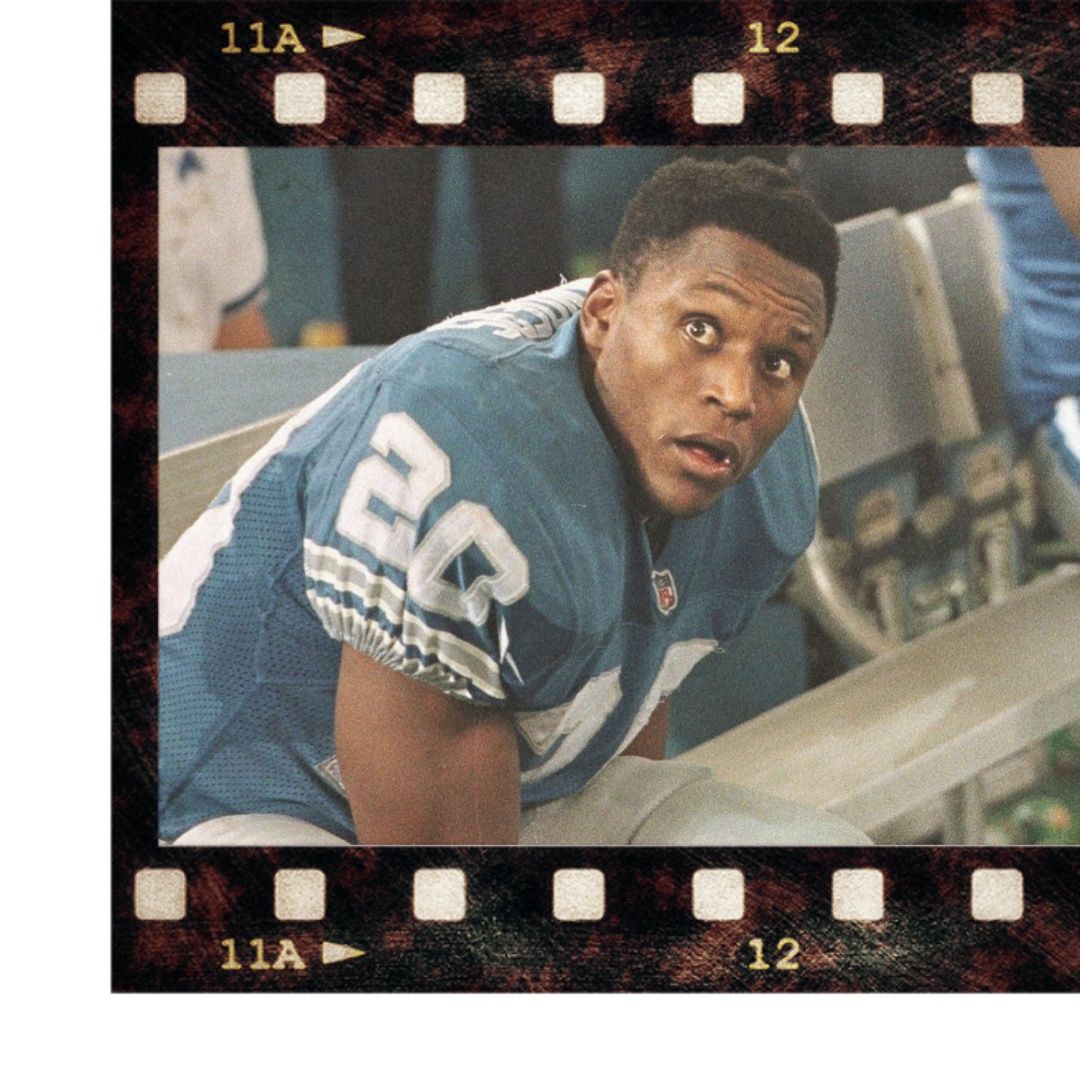JULY 29th 1999
THAT DAY..........................................BARRY SANDERS Sanders, considered as the best running in the history of football, at 31, announces his retirement, just 1,457 yards short of Walter Payton's NFL career rushing record.
Barry Sanders is a former American football running back who played professionally for the Detroit Lions in NFL. Sanders was Born in Wichita, Kansas. He attended Wichita North High School and was overlooked by most college recruiters. Barry was still Enrolling at Oklahoma State University, "His work ethic got my attention," coach Burkholder said. "Kids will find any excuse not to come to weightlifting in the summer. Barry, he didn't have a car, nothing. So he rode his bike three miles each way to get there." During his first two years, he backed up All-American Thurman Thomas. People started to notice him. "Whatever you do, don't hurt Thurman (Thomas). You don't want to play against this freshman back they have named Barry Sanders.” That’s what Barry Switzer said before the 1987 Oklahoma- Oklahoma State game. In 1987, Thomas moved on to the NFL, and Sanders became the starter for his junior year. In 1988, in what is considered one of the greatest individual seasons in college football history, Sanders rewrote the records books. He rushed for 2,850 yards, scored 44 touchdowns and broke 34 NCAA records then chose to leave Oklahoma State before his senior season to enter the NFL draft.
The Detroit Lions selected Sanders with the 3rd overall pick in the 1989 Draft. There were concerns about his size, BUT in fact. Sanders was far too quick for defenders to hit solidly on a consistent basis, and too strong to bring down with arm tackles.
Sanders' greatest season came in 1997. He became only the third player to do so in a single season and the first since O. J. Simpson to rush for 2,000 yards in a span of 14 consecutive games. He was the first running back to rush for 1,500 yards in five seasons and the only one to do it four consecutive years . In Sanders' last season in the NFL, 1998, he rushed for 1,491 yards, ending his four-year streak of rushing for over 1,500 yards in a season.
Despite his individual success, the Lions never reached the Super Bowl while Sanders was with the team. In 1991, The lions defeated the Dallas Cowboys 38–6 in the divisional playoffs and......that's it.
On JULY 29th 1999, Barry sanders announced his retirement. He shocked the world because he was on of the best player in the NFL. Plus, he was one season away from beating Walter payton's record, the most prestigious record for a running back . He left football healthy, having gained 15,269 rushing yards (the highest total rushing yards ever by any NFL player in a 10-year span), 2,921 receiving yards, and 109 touchdowns (99 rushing and 10 receiving). Sanders', Two years earlier, had renewed his contract with the Lions so his retirement came somewhat unexpectedly..
People says that Sander's desire to play for a winner is the exclusive reason for what many considered his "early" retirement. Sanders could've played probably at least 3 more years if he so chose to. But, the fact is Sanders played 10 years. That is a long time for an NFL running back. Sanders played much, much longer than the typical RB, the average amount for a first round draft pick and slightly less than all the players with at least one Pro Bowl selection. Sanders was still playing at a high level and he was free of major injuries for most of his career, but the kind of carries he had and the cumulative effect of almost two decades of playing football was concerning for him. Barry said in interviews the main issue with walking away was that he was concerned about his life after football. He wanted to live a full and healthy post football life.
And we can only agree.
To know more about the subject:
Merron, Jeff. "Best individual college football seasons". ESPN.com. Retrieved July 14, 2017.
Trotter, Jake (August 8, 2014). "Sanders' 1988 season stands alone". ESPN. Retrieved August 8, 2014.
Monarrez, Carlos. "20 years later, Barry Sanders 'not sure' he'd change 'clumsy' retirement". Detroit Free Press. Retrieved January 14, 2020.
Sanders, Barry; McCormick, Mark E (2003). Now you see him... his story in his own words. Introduction by John Madden. Indianapolis: B. Sanders, Inc., in conjunction with Emmis Books





